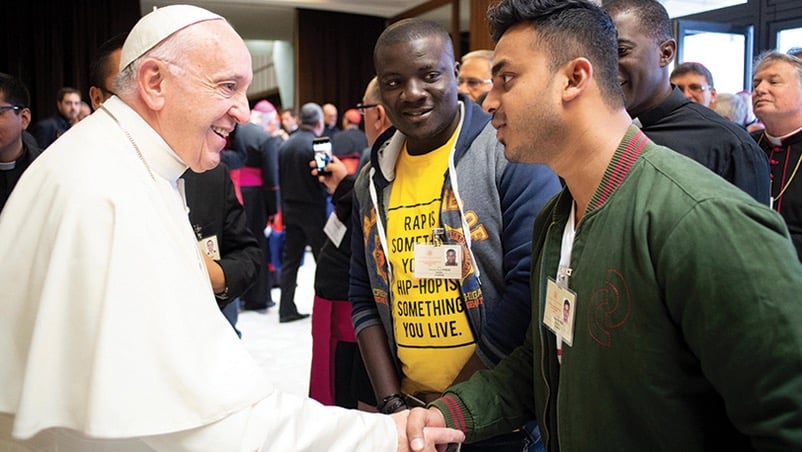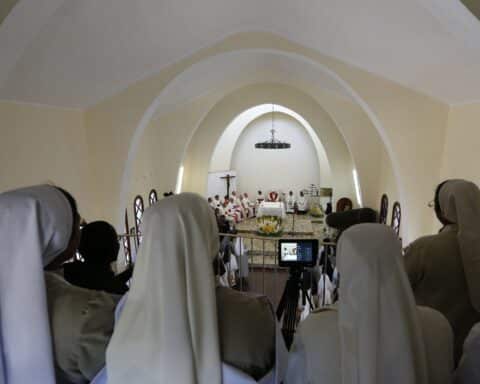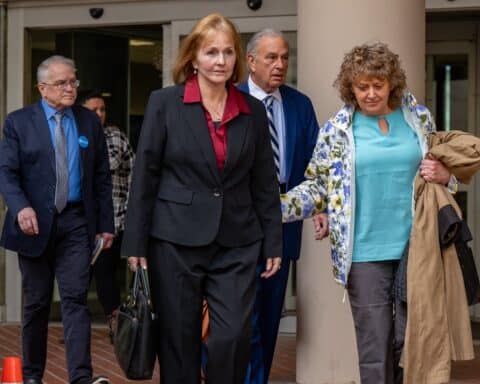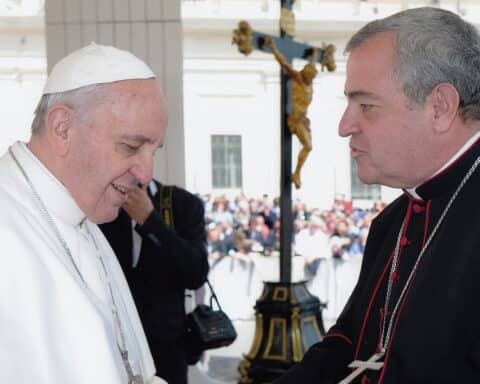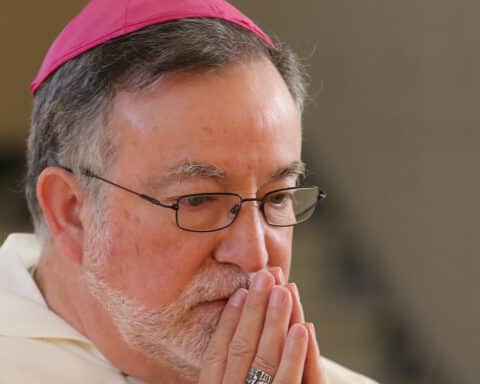A few key themes emerged in early October as the Synod of Bishops on Young People, the Faith and Vocational Discernment entered its second week in Vatican City.
Listening to young people, taking their concerns seriously and accompanying them on their journeys of faith will be necessary for the Catholic Church of the future, said several Synod fathers and young adults who are auditing the four-week gathering.
“In the light of the Holy Spirit and faith, we believe that there is a way, based on the teachings of the Church, to be able to deal with the issues” that young adults face, 21-year-old Joseph Cao Huu Minh Tri of Vietnam told reporters during a media briefing on the Synod’s second day.
Just as important as accompaniment, according to several bishops who addressed the Synod, will be the need for Church leaders to evangelize the youth by offering the whole truths of the Catholic faith, providing reverent liturgies and helping them to encounter Christ.
“If we lack the confidence to preach Jesus Christ without hesitation or excuses to every generation, especially to the young, then the Church is just another purveyor of ethical pieties the world doesn’t need,” Philadelphia Archbishop Charles J. Chaput told the Synod on Oct. 4.
Cloud of abuse
Discussions engaged several serious topics, especially the sex abuse crisis that is roiling the Church around the globe. Addressing young people in Pope Francis’ presence, Archbishop Anthony Fisher of Sydney, Australia, on Oct. 4 apologized “for the shameful deeds of some priests, religious and laypeople, perpetrated upon you or other young people just like you, and the terrible damage that has done.”
Archbishop Fisher also said he was sorry “for the failure of too many bishops and others to respond appropriately when abuse was identified, and to do all in their power to keep you safe; and for the damage thus done to the Church’s credibility and to your trust.”
Bishop Frank Caggiano of Bridgeport, Connecticut, continued that theme the following day, telling the Synod during his Oct. 5 intervention that the sexual abuse of minors by clerics was an issue that weighed on his heart.
“It is a both a crime and a sin that has undermined the confidence and trust that young people must have in the Church’s leaders and the Church as an institution, so that they may again trust their priests and bishops to exercise true spiritual fatherhood, serve as adult figures in their lives and as authentic mentors of faith,” Bishop Caggiano said.
The sexual abuse crisis emerged frequently through the first week as a topic of discussion among bishops, lay auditors and reporters during the Vatican’s daily press briefings. At a Holy See Press Office briefing on Oct. 8, Archbishop Charles J. Scicluna of Malta, who has investigated clergy sexual abuse for the Vatican, told gathered reporters that he has many times cried with abuse victims, who are usually no longer young people when he meets them. “It pains me that justice takes so long. This is also very painful to Pope Francis,” said Archbishop Scicluna, who added that young people are searching for a Church that is authentic, and that bishops must be accountable to God and their people.
Points of dispute
The synod, which is taking place Oct. 3-28, is the third of Pope Francis’ five-year papacy. It follows the synods in 2014 and 2015 on family life that Pope Francis capped in 2016 with his apostolic exhortation Amoris Laetitia.
The earlier synods were marked by often intense debates, in and outside the synod hall, around issues pertaining to the pastoral care of divorced peoples who had remarried without an annulment.
The run-up to the current gathering had some controversy, with conservative commentators displeased that the gathering’s preliminary working document — the Instrumentum Laboris — made several references to the topic of sexuality, including the use of the acronym LGBT to refer to lesbian, gay, bisexual and transgender people.
Archbishop Chaput — who in late August said he wrote to the pope asking him to cancel the synod because he felt the bishops had no credibility on issues pertaining to young people — told the Synod fathers that LGBT and similar language should not be used in Church documents “because using it suggests that these are real, autonomous groups, and the Church simply doesn’t categorize people that way.”
Needs in the world
The synod — which has gathered 267 bishops and priests members along with 72 lay auditors and eight delegates from other Christian denominations — has had some poignant moments. During the opening Mass, Pope Francis noted the presence of two bishops from mainland China, marking the first time that the communist government in Beijing had allowed Catholic bishops from that country to attend a synod in Rome. That move followed a recent diplomatic accord signed between Beijing and the Holy See pertaining to the appointment of bishops in China.
“The entire episcopate and the successor of Peter is even more visible thanks to their presence,” said a visibly and audibly moved Pope Francis, who encouraged all the bishops in attendance to listen to one another in the days ahead “sincerely and prayerfully, as free as possible from prejudice and conditioning.”
The pope also said that young people “will be capable of prophecy and vision to the extent that we, who are already adult or elderly, can dream and thus be infectious in sharing those dreams and hopes that we carry in our hearts.”
In his Oct. 5 remarks before the synod, Auxiliary Bishop Robert Barron of Los Angeles, the well-known founder of the global media ministry Word on Fire, called for a “renewed apologetics and catechesis” to help young people who are tempted to leave the Church due to the belief that its teachings are outdated, irrational and give rise to violence.
“I can verify, on the basis of 20 years of ministry in the field of online evangelization, that these concerns are crucial stumbling blocks to the acceptance of the Faith among young people,” said Bishop Barron, who added that a new apologetics would “arise from the questions that young people spontaneously ask” and respond “to the yearning of the heart and mind.”
Sister Briana R. Santiago, 27, of San Antonio, Texas, who is in her fifth year of formation with the Apostles of the Interior Life, addressed the Synod on Oct. 5. She told the gathering that young people like her today are “in search of the meaning of life, in search of work, in search of our path or vocation, in search of our identity.”
“We acknowledge that there are so many needs in the world,” Sister Santiago said, “so many topics on which it is necessary to reflect and dialogue, and so we are all the more grateful that, in this historic moment, the Church is focusing her attention on us and all that relates to us.”
Brian Fraga is an Our Sunday Visitor contributing editor.

